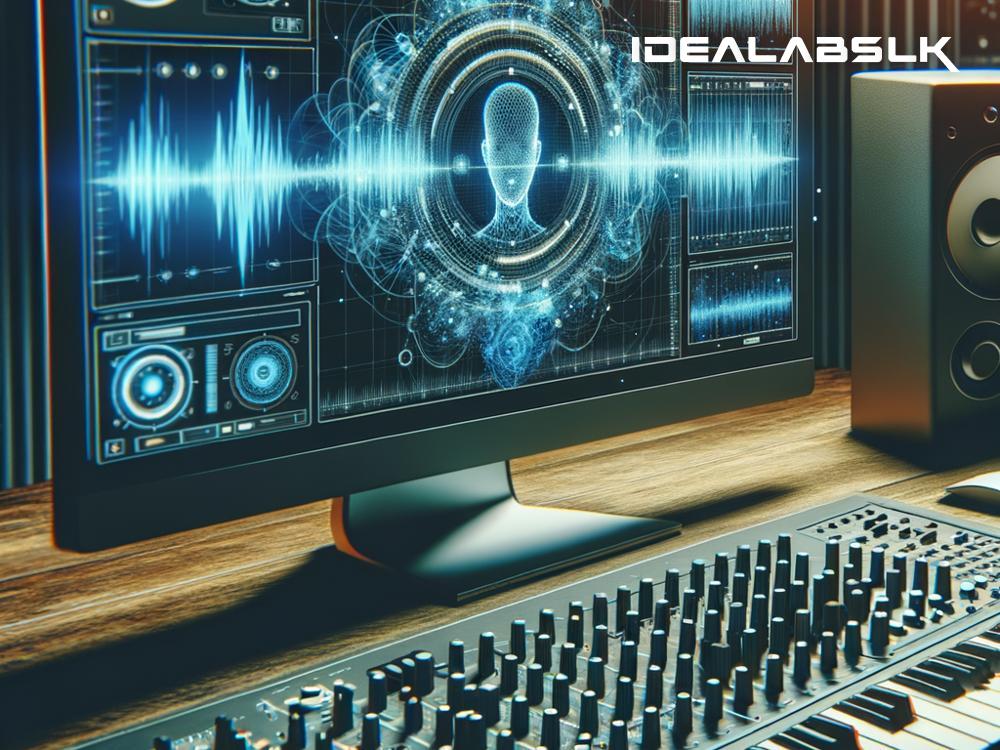Title: The Future is Now: How AI is Crafting Voice Clones for the Stars
Imagine listening to your favorite podcast, and suddenly, it seems like Barack Obama himself has joined the conversation. Or picture your favorite audiobook being narrated by Morgan Freeman, only to find out it’s not actually him. Sounds like something out of a sci-fi movie, right? Well, the future is now, and it’s happening thanks to the incredible advancements in AI and speech synthesis technology.
AI, or Artificial Intelligence, has been a game-changer in many aspects of our lives, and its impact on the world of voice is no less revolutionary. Speech synthesis, also known as text-to-speech technology, has been around for a while. But it's only recently that it has become sophisticated enough to clone voices, giving birth to what we now call "voice clones."
Voice cloning technology uses deep learning algorithms - a branch of AI - to analyze the sound patterns of a person’s voice. It then replicates these patterns to generate speech that sounds strikingly similar to the original voice. This isn’t about just mimicking the tone or accent; it's about capturing the essence of how a person speaks, including their cadence, pitch, and even emotional inflections.
The process starts with the AI analyzing the voice it wants to clone. This involves feeding hours of audio recordings into the system so it can understand and learn the nuances of the voice. The more data it has, the more accurate the clone will be. Once the AI has a good grasp of the voice, it can start producing speech that sounds eerily similar to the original speaker - all it needs is text input.
So, why create voice clones of celebrities? One of the most exciting applications is in media and entertainment. Imagine having celebrities narrate audiobooks, star in video games, or even voice GPS navigation systems without them ever stepping into a recording studio. It opens up a world of possibilities for content creation and personalization.
For celebrities, it can also be a way to protect and monetize their voices. By licensing their voice clones, they can continue to earn from their voice work without the time commitment of recording sessions. It also means their voice can continue to be used in a respectful and controlled manner even after they’re no longer with us, keeping their legacy alive.
However, as thrilling as this technology sounds, it does raise some ethical and legal questions. The ability to clone voices can lead to concerns about consent, privacy, and misuse. There's the potential for voice clones to be used without permission, or worse, used to create deepfakes - highly realistic and convincing fake audio or video content. This underscores the importance of establishing clear regulations and ethical guidelines for the use of voice cloning technology.
Despite the potential pitfalls, the advancement in AI-driven speech synthesis is undeniably fascinating. Companies like Descript’s Overdub, Adobe’s Project VoCo, and others are at the forefront of this innovation, offering tools that not only create voice clones but also make it easy for users to generate realistic-sounding speech with just a few clicks.
In conclusion, AI in speech synthesis is breaking new ground, allowing us to create voice clones of celebrities with remarkable accuracy. This technology holds immense potential for transforming the entertainment industry, offering new ways for celebrities to engage with their audience and for content creators to innovate. However, as we venture further into this brave new world, it’s crucial that we navigate the ethical and legal challenges wisely. The goal should always be to use these advancements to enrich our lives and experiences, without compromising our values or rights. As we stand on the cusp of this exciting frontier, one thing is clear: the future of voice is here, and it sounds more familiar than ever.

